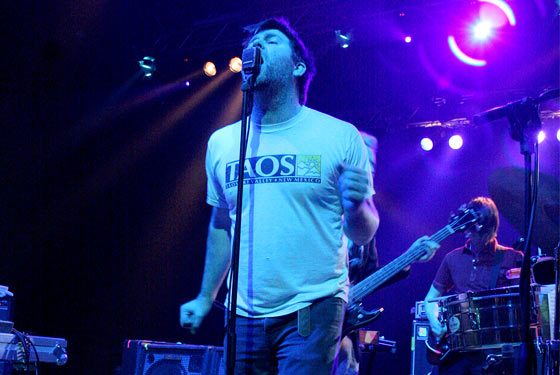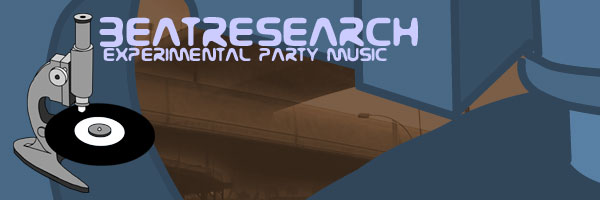Imitation is the Most Illegal Form of Flattery
Disco isn't dead, thankfully, and I've been a long-time admirer of the DFA camp, especially el jefe James Murphy, for maintaining a disco sensibility that includes a deep reverence for the classics. While LCD Soundsystem is viewed as relentlessly contemporary and trendsetting, Murphy's DJ sets and pure compositional work betray a sense of lineage -- he isn't breaking new ground so much as updating and readapting it in another musical generation.
DFA often straddles the line between excessive commercialism and the underground music scene, however, and I downloaded up 2006's 45:33 with some trepidation. First EMI, now Nike? I'm rather fond of the often dreamlike, spaced-out epic, however, and honestly thought it didn't sound much like running music.
I'm late to the scoop, but it turns out I was right: The whole business about a jogging soundtrack was a sham. As the cover, which I hadn't seen before, makes clear, it's an homage to Manuel Göttsching's E2-E4, one of the finest proto-techno electronic compositions.


Having Nike finance your otherwise not commercially viable 45-minute electronic opus? Brilliant.
The story could end there, but the problem is that the reverence toward Herr Göttsching was not entirely appreciated. I dug up this press statement on the interwebs. After going on about the iconic status of "E2-E4," it paints Murphy as a johnny-come-lately:
This clearly doesn’t qualify his album as a tribute to the great role model.
He's just jumped on someone else's gravy train without buying a ticket.
What Murphy is doing is exploiting the album's reputation for his own purposes illegally
in the context of German Competition Regulations and also according to legislation of other countries, too.
Sadly, it boils down to a bristling about copyright infringement and the branding of the chessboard image. I happen to take Murphy's side in this one -- the world needs more, not less, E2-E4/45:33-esque études. Instead, it's another public case of an electronic auteur uncomfortable with the dance music progeny his work has spawned.

And frankly I'd much rather hear Murphy behind the mixing board than in front of the microphone. DFA has been experiencing a resurgence in the last year or so, as always on the strength of its tireless dedication to the 12" single, releasing dance floor favorites like Holy Ghost!'s smooth plaintive "Hold On", Juan Maclean's blissful "Happy House", and now a full-length from the mythologically-inspired Hercules & Love Affair (whose full-length dropped a few days ago on June 24, my birthday). They've gotten some high-profile press, and I think might represent a sea change for DFA. As Tim Goldsworthy explains in the article, "'It’s really honest,' Mr. Goldsworthy said in a phone interview, pointing out that most artists in the DFA world approach disco from more of a punk or new-wave sensibility. He said that, as a club kid, Mr. Butler 'understands disco and he understands all the little quirks of the music that other people would probably find cheesy.'" After years of mining the points in the late '70s and '80s when rock bands encroached on disco territory, they've finally acquired a flagship act who's loud and proud -- gay, campy disco with no shame, producing glorious diva house without a trace of irony. It might be just the tonic to pull DFA out of the post-ironic/hipster milieu and firm up their dance chops. Play another record, James.
Labels: copyright, disco, electronics, house, remix







